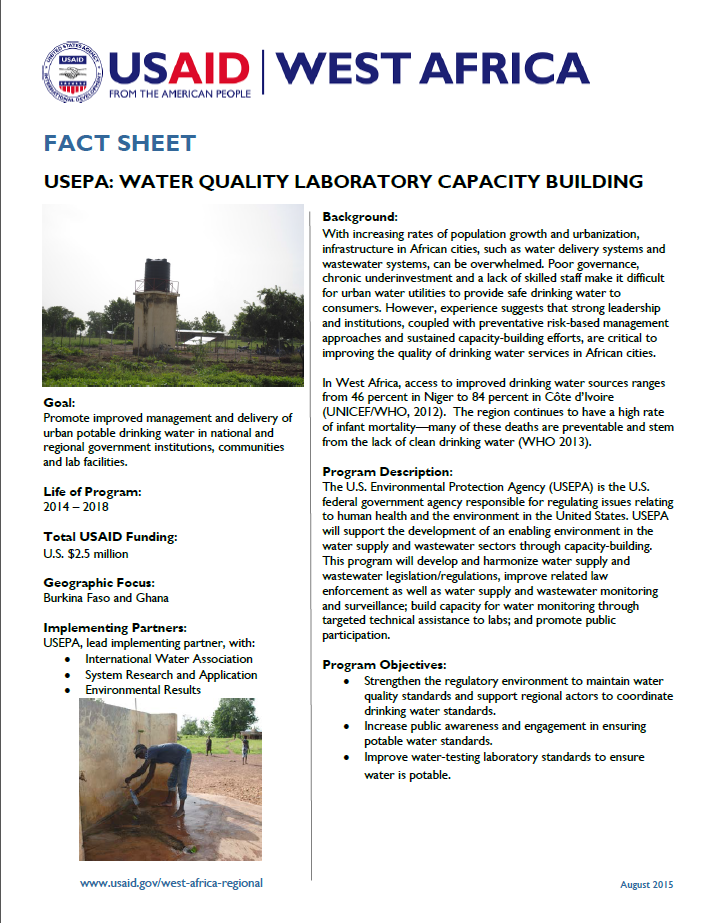USEPA Water Quality Laboratory Capacity Building ![]() (pdf - 203k)
(pdf - 203k)
Goal:
Promote improved management and delivery of urban potable drinking water in national and regional government institutions, communities and lab facilities.
Life of Program:
2014 – 2018
Total USAID Funding:
U.S. $2.5 million
Geographic Focus:
Burkina Faso and Ghana
Implementing Partners:
USEPA, lead implementing partner, with:
• International Water Association
• System Research and Application
• Environmental Results
Background:
With increasing rates of population growth and urbanization, infrastructure in African cities, such as water delivery systems and wastewater systems, can be overwhelmed. Poor governance, chronic underinvestment and a lack of skilled staff make it difficult for urban water utilities to provide safe drinking water to consumers. However, experience suggests that strong leadership and institutions, coupled with preventative risk-based management approaches and sustained capacity-building efforts, are critical to improving the quality of drinking water services in African cities.
In West Africa, access to improved drinking water sources ranges from 46 percent in Niger to 84 percent in Côte d’Ivoire (UNICEF/WHO, 2012). The region continues to have a high rate of infant mortality—many of these deaths are preventable and stem from the lack of clean drinking water (WHO 2013).
Program Description:
The U.S. Environmental Protection Agency (USEPA) is the U.S. federal government agency responsible for regulating issues relating to human health and the environment in the United States. USEPA will support the development of an enabling environment in the water supply and wastewater sectors through capacity-building. This program will develop and harmonize water supply and wastewater legislation/regulations, improve related law enforcement as well as water supply and wastewater monitoring and surveillance; build capacity for water monitoring through targeted technical assistance to labs; and promote public participation.
Program Objectives:
• Strengthen the regulatory environment to maintain water quality standards and support regional actors to coordinate drinking water standards.
• Increase public awareness and engagement in ensuring potable water standards.
• Improve water-testing laboratory standards to ensure water is potable.








Comment
Make a general inquiry or suggest an improvement.